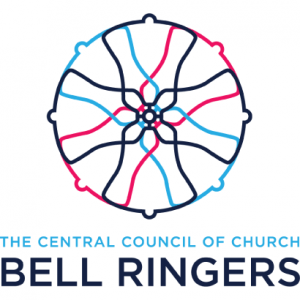President’s blog
Reflecting on the benefits of one extra ringer, intangible cultural heritage, the Young Change Ringers Association, and the New Year honours.
Welcome to 2024, which finds me freshly returned from a trip to Northern Virginia visiting family. The jet lag never gets easier, so bear with me this month.
I was on my way to the airport when the BBC broke the news about the UK finally agreeing to sign the 2003 UNESCO Convention for the Safeguarding of Intangible Cultural Heritage, causing a flurry of messages at the airport before boarding my flight. A small working party investigated this a couple of years ago and were stopped cold by the fact that the UK at the time had zero plans for signing up. Now the game is afoot …
It turns out that the UK government are in the first stages of defining an inventory of intangible cultural artifacts, in advance of ratifying the convention. In fact, it looks like the UK government is starting with a consultation to define the criteria for an intangible cultural heritage. All pretty cautious so far, and the start of a long process. Just what aspect of bellringing we want to define in this way is possibly our starter for ten.
What does this mean for bellringing? The benefits are likely to be intangible (no direct promise of funding streams for instance), but recognition could help us promote bellringing, and give us some leverage when discussing issues of access and conservation with other groups and stakeholders. Other ringers are a lot more articulate about this than me, and you can check in (and participate) with the discussion on Ringing Forums here: https://www.ringingforums.org/discussion/364/unesco-status-for-bell-ringing
We are also hosting a public meeting online to help drive this forward at the end of January. Check our website (cccbr.org.uk) or email me for more details. Please come along and listen and debate with us.
The holiday season also brought some happy news in the New Year honours list, which included honours for bellringing: Dickon Love, David Town, and Andrew Beevers. Andrew has been awarded a BEM for services to bellringing and community in Ecclesfield. David has also been awarded a BEM for services to bellringing in Northallerton and North Yorkshire. Dickon, who volunteers for the Council as a steward of the Dove’s Register of Bells, has been awarded an MBE for services to bellringing in London and Kent. I hope many celebrations are being planned in both Yorkshire and London – well deserved and congratulations to all of you.
Despite this being mostly a family visit, Simon and I managed to do a bit of ringing. Serendipity had three handbell ringers, Bryn and Leland Reimer and Myles Dakan, from Massachusetts visiting in the area as well, and we had a pleasant afternoon ringing, including a plain course of Norwich Surprise Royal. This doesn’t get rung a lot, and I wouldn’t necessarily argue that it should be brought into whatever passes as canon in ringing. However, methods like these are similar to études in piano – a little piece to practice particular skills. Some études are amazing pieces of music in their own right, and others are, well, just things you practice.
It has been more than 20 years since I last rang at the National Cathedral in Washington, which made for an adventurous car journey involving several more crossings of the Potomac than we had planned, and an equally unplanned tour of the monuments before we arrived at a practice night. I had an internship in the area while at Kalamazoo College, and when I lived near Philadelphia, we had regular weekends of ringing, food and getting the next edition of The Clapper ready to print and distribute. So I have some memories.
We weren’t the only visitors – Eric Trumpler was also visiting, and it turned out that the visitors were the only male ringers in the tower that night. Simon mentioned he didn’t think he had experienced that before, so I then explained that the key teaching towers for some time were the Cathedral Girls School, and Smith College (which was female only). So a lot of American-trained American ringers were women (and still are). I consider myself fortunate that my early ringing happened surrounded by those role models.
I was also one of the fortunate ringers who had people point me to my next destination, give me a name to contact when I moved, or even contacted the local band in advance of my arrival. This meant that as I moved through stages in life from university to working life (and back), and through several international relocations, I always knew where I could ring.
This is not every ringer’s journey, and it’s a leaky pipeline we need to fix. One of the leakiest places is between leaving school and moving towards further education destinations. And we have a fix for this. It’s called the Young Change Ringers Association, run by young ringers, for young ringers, and it’s open to any ringer below the age of 30. It is there to help connect up young ringers, hold events and to help support those ringers who have little other access to a young ringers group. The membership fee is modest, and it is worth a tower or an association subbing the first year’s membership to encourage young ringers in creating their own networks. Check out their website at https://ycra.org.uk/
We had a visiting ringer of some eminence drop by our Sunday service ringing on the way back from a week in Tulloch. The effect on the rest of the band was electric, as everyone upped their game just a little bit. I have seen this a few times, and one more confident ringer can make a disproportionately large beneficial effect on the ringing. So, where we can, let’s all be that confident ringer, and otherwise ring as though we are trying to impress a visiting eminence.
Happy New Year!
Send to a friend
